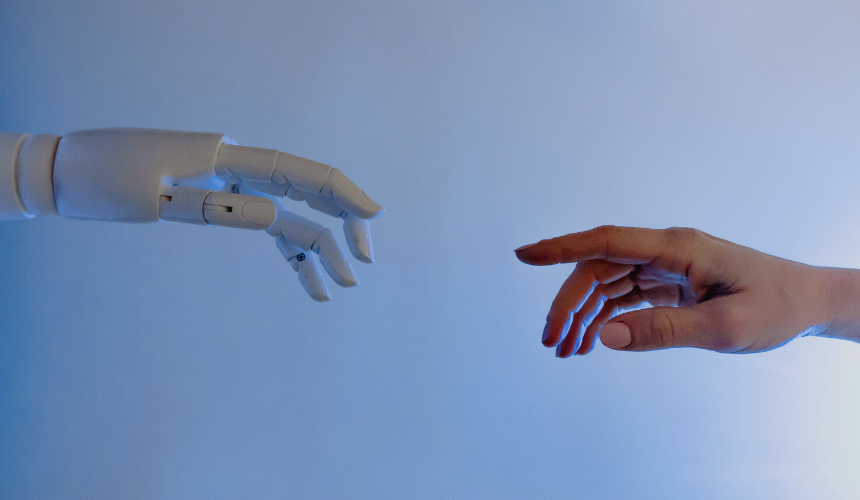In the future, it is likely that robots will be able to perform some of the tasks currently performed by hospitality workers. Hotel guests may prefer the speed and convenience of an automated system over a human interaction. This article examines how AI will affect the hospitality industry and what challenges and opportunities it presents.
Professional relationship between humans and robots
Artificial intelligence is rapidly revolutionizing the business-as-usual model of the hospitality industry. It has the potential to disrupt the customer experience as we know it, and could provide powerful tools to help humans make better decisions about their experiences, which will impact the industry’s entire workforce.
The challenge is to ensure that companies integrate AI and frontline service robots in a way that is fair and equitable. To do so, we need to consider several dimensions such as:
- The use of robots in service delivery raises ethical considerations (replacement, responsibility, trust/safety, privacy/data protection, autonomy, and human cues).
- The customer experience (or CX) is the interaction between a human and a robot.
- The optimal use of robots by employees requiring co-creation between workers and robots.
How AI can improve customer satisfaction
By allowing robots to perform repetitive human tasks, the development of Artificial Intelligence is reshaping the customer experience. However, there are still unanswered questions about how far AI can take us. For example, service robots can perform some of the functions of a waiter, a barista, or the housekeeping team.
One notable example is The Henn na Hotel Tokyo Ginza—a robot-staffed hotel that took the risky bet to automate as many of its activities and services as possible with the use of robots. The goal was clear: the robots could add to the customer experience, improve margins by reducing costs, and eliminate headcount and workloads. Despite operational errors, everything did not go according to plan, and the reviews were mixed at best.
How hospitality companies can utilize futuristic opportunities to their advantage
Robots have come a long way since then, and the growth of robotization in the hospitality industry is accelerating rapidly as technology and connectivity improve. The use of artificial intelligence in the field of robotics has also opened up enormous opportunities for the hospitality sector, with a growing range of uses that can improve customer experience, brand awareness, and customer loyalty.
The COVID-19 virus has played a vital role in paving the way for these developments. Robots can now perform certain skills and services more safely than human beings, as there is no risk of catching the virus from robots. This is because robots do not breathe.
Because robots can be easily sanitized between each guest and thus ensure a safe customer experience, protecting both employees and guests during a pandemic is beneficial. Robots can perform UV disinfection that humans cannot, and non-contact services such as digital concierge offerings, chatbots, or voice-activated and enabled rooms are already fixtures in the hotel rooms of tomorrow. Besides service robots, digital interfaces driven by AI are likely to become omnipresent across the industry.
How will AI impact the workforce? Will it be possible for humans and machines to collaborate?
The use of robots makes sense at this particular time, but the rapid deployment of robots is controversial, especially in countries where the unemployment rate is high. Seasonal, casual and operational staff in the hospitality industry could be most impacted over time by the rise of artificial intelligence.
McKinsey and Company’s research shows that artificial intelligence is already having a major impact on the workforce, but it is not the only technological mega-trend shaping the future of work. “Trends like remote work, e-commerce, and continuing automation could mean more than 100 million workers might need to find a different occupation by 2030—that’s roughly the same as the populations of Canada and Italy combined,” the consultancy said in an August 2021 report.
How service robots and their customers can share a space in harmony
Further, a key question still remains to be addressed: How will customers adapt to this trend? Do they expect or want their service to be provided by robots? Or, do they still want to be welcomed by smiling humans? The question is not yet settled.
The ability of service robots with AI must be able to engage and display empathy for some guests to accept their use more readily. This is still a significant technological issue. At the same time, a whole new generation of passengers is becoming accustomed to an increasingly impersonal service experience. Both may be present in combination in the future.
In the future, it wouldn’t be shocking if prospective visitors used service robots as a new factor for lodging selection. Certain hotels or hotel chains may decide to use robots to set themselves apart from the competition and draw in particular clientele.
Without a question, elite hotels will continue to place a high value on interpersonal contacts to maintain a competitive and luxurious offering. Robots might, however, do the work in other kinds of hotels where interpersonal relations are less vital.
Business performance: How AI may become a helpful tool
For the workforce in the hospitality sector, AI is a game-changer since it will enable hotels to provide even more individualized and customized experiences.
As a tool for business, AI enables owners and managers to evaluate a sizable portion of the information and data they generate daily across their firm. Therefore, to increase income and maintain cost and product competitiveness in the future, hoteliers should be open to utilizing AI and implementing AI-based initiatives.
Additional applications for AI include:
- Reputation management: AI may evaluate social media postings and guest reviews about the hotel and offer automatic answers or assist staff members in dialogue by highlighting unfavourable comments.
- Personalization: AI can make timely suggestions to visitors by examining their preferences, interests, and behaviour and presenting them with tailored offers that are relevant to them.
- Predictive analytics, revenue management, and pricing: They are all impacted by AI, which may offer real-time market intelligence indications and support price adjustments for hotels. Additionally, it can help with inventory management and offer visitors improvements based on past behavior.
- Sales & Design: Using AI, hotels may create a customized marketing campaign to appeal to the target demographics by monitoring and analysing booking patterns, seasonal demand, and other guest behaviours.
The role of emotional intelligence
Following this analysis of AI’s use in the hospitality sector, it is now obvious that, in the not-too-distant future, it will permeate every aspect of corporate operations. Concerns regarding how to adjust the workforce to these new practices still exist among experts. Emotional intelligence (EQ), which groups a core of abilities (such as regulating one’s own emotions and the emotions of others), was deemed to be the most important skill set for hospitality employees. Do we still need emotional intelligence in today’s world of new technologies?
The answer is definitely yes!
Customers will want high-end service levels with integrated technical solutions, especially for the younger generations. AI can currently only be taught to react to particular stimuli. Employees can adapt to a range of scenarios without training thanks to their soft talents, and they can exhibit more empathy, generosity, and honesty than any machine created to date. However, to manage all the AI technologies currently used in the sector, personnel will need to be tech-savvy.
This suggests that for staff members to effectively use, monitor, and evaluate technological applications in the sector, hospitality schools will need to educate both the hard and soft skills required. The workforce will undoubtedly change as a result, and managers will need to properly train their present employees.
How will we use AI in the future?
The use of AI in the hotel sector is yet in its infancy. The onset of the AI age is disrupting in both the front- and back-of-house staff’s operations as well as how customers will soon experience “hospitality”.
One obvious example is the creation of the Metaverse, a virtual world that emphasizes social interactions. The Metaverse has the potential to develop into a new booking channel that will provide customers with immersive experiences and enable them to tour rooms and properties even before they reach their destination. This is a whole new area of AI use that the sector should investigate right away.
Last but not least, the sector has to be aware that new varieties of AI are on the horizon that goes beyond our present technical grasp. These new technologies might further disrupt the industry, thus all industry participants will need to adopt AI.





